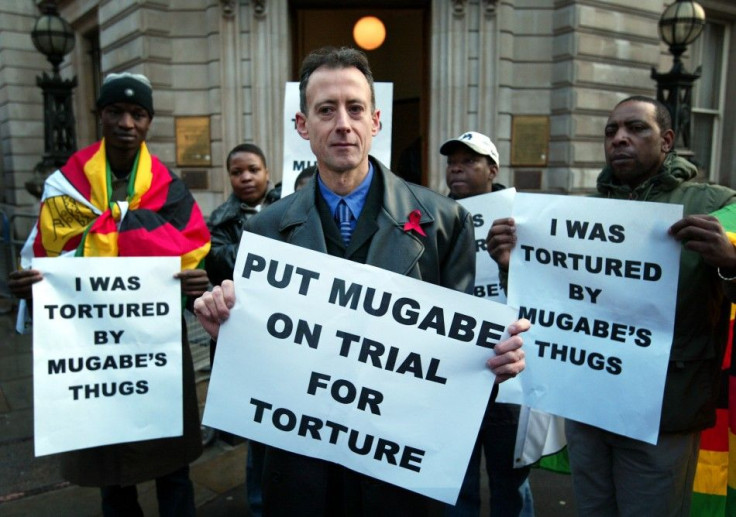South Africa Must Investigate, Prosecute Zimbabwe War Criminals: Court

A court in South Africa has ruled that the government must investigate allegations that Zimbabwe officials committed atrocities, including the use of torture, against opposition figures in 2007, under the regime of President Robert Mugabe.
Judge Hans Fabricius of the Pretoria High Court also ordered the National Directorate of Public Prosecutions and South African Police Service to prosecute any Zimbabweans suspected of committing such “crimes against humanity” if they enter South Africa.
Previously, South African police and prosecutors had refused to probe the alleged crimes.
The matter was brought to the attention of the court by the Southern African Litigation Centre and the Zimbabwean Exiles Forum. They have identified at least 17 Zimbabwean officials who committed atrocities.
Gabriel Shumba, chief of ZEF and a Zimbabwean human rights attorney, praised the ruling.
“As a victim of torture myself, this is a victory for all people who suffer injustice not only in Zimbabwe, but across the world,” he said.
“The ruling has proved that there are jurisdictions where victims can fight to enforce their right, or at least be heard.”
Alan Wallis, an attorney for the International Justice Project, called the ruling “ground-breaking.”
“This is the best chance to secure justice for Zimbabweans. The court has sent a clear message that South Africa will not be a safe haven for perpetrators of international crime,” he said.
Shumba added: “The greatest impact of this ruling is the moral victory that it gives to justice over political expediency. This will potentially deter those who may be compelled to carry out the same kind of abuses. It is a self-serving argument for anyone to say international relations should be considered and sacrifice the law, because in essence international relations should be premised on morality, legality and the rule of law.”
Zimbabwe Justice Minister Patrick Chinamasa dismissed the ruling, saying South Africa has no jurisdiction to investigate crimes in his country.
Crimes attributed to Zimbabwe security officials and police included a raid on the offices in Harare of then-opposition group Movement for Democratic Change in 2007. MDC officials said that their members had been arrested and tortured by the police.
Zimbabwe and South Africa, both led by movements that overthrew white minority rule, have good diplomatic relations, with South Africa frequently mediating on behalf of Zimbabwe; and Zimbabwe government figures often traveling to its neighbor.
An estimated 4 million Zimbabweans have fled to South Africa in recent years.
© Copyright IBTimes 2025. All rights reserved.





















